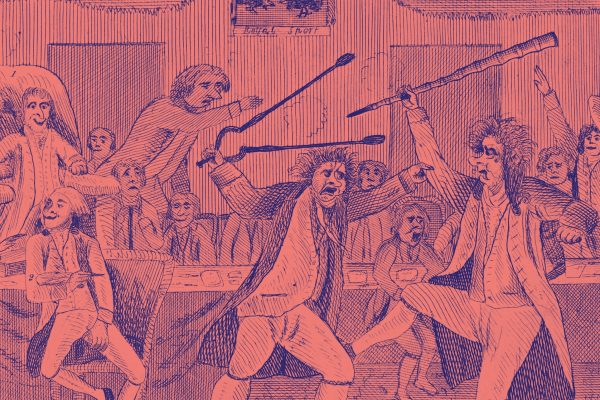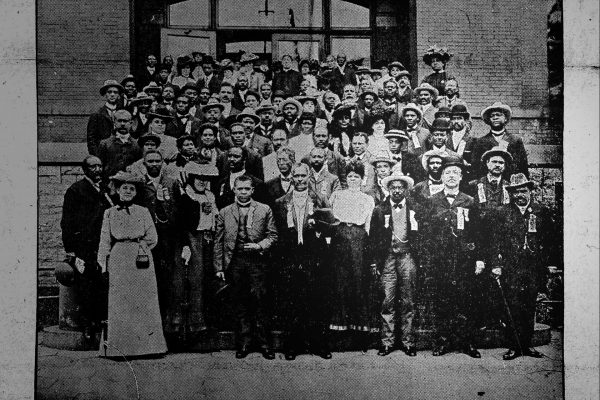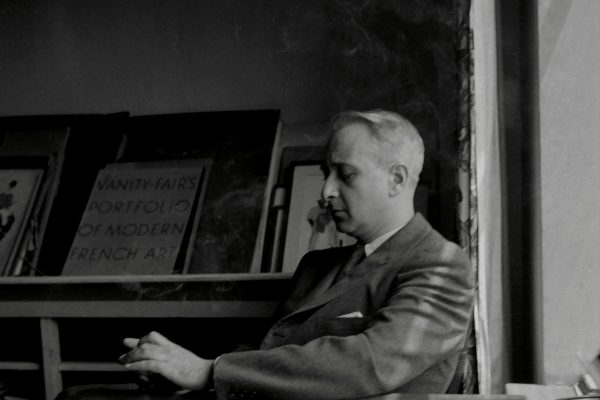Some years ago, I had the privilege of studying in graduate school at Harvard under T. M. Scanlon—Tim, as everyone who knows him calls him. As of a few days ago, he has taught his last class as a full-time member of the Harvard philosophy department, where he arrived from Princeton in 1984. But, though he is freshly retired, he has, I hope and expect, not taught his last student. Because Scanlon’s intellectual contributions are important and enduring.
Scanlon is a modest man, so he might not appreciate my saying it, but he stands as one of the most powerful and insightful moral and political philosophers of recent decades. His largest book, What We Owe to Each Other (1998), develops and defends a distinctive approach to interpersonal morality, known as contractualism. Scanlon’s idea is that interpersonal morality—giving others their due—involves being able to justify your conduct to others. Doing right by other people means treating them in ways they cannot “reasonably reject.” More recent work includes a subtle account of the role and function of moral blame in Moral Dimensions (2008) and, in 2014’s Being Realistic About Reasons, a defense of a kind of moral realism, the claim that moral truths exist independently of humans’ beliefs and attitudes.
While Scanlon has been a system-builder in moral philosophy, his work in political philosophy, by contrast, focuses on particular values. His 2003 book The Difficulty of Tolerance includes an account of freedom of expression as well as insightful essays on toleration, human rights, and punishment, among other topics. Now Scanlon is at work on a book whose subject has concerned him for a long time, but which has in just the past five or so years emerged as a central axis of political debate: inequality.
Scanlon’s ideas about equality are philosophically significant. They also have the potential to inform how we ought to approach day-to-day politics.
Ex post compensation is not good enough. The state must ensure, from the start, that people are able to pursue lives of robust agency.
To see how, it helps first to return to a long-running intellectual dispute over the value of equality and the meaning of egalitarianism. Before I crossed the Atlantic, I studied at Oxford, where, in the 1990s, two important figures of recent political philosophy, G. A. Cohen and Ronald Dworkin, found themselves pitted against each other. The sticking point was the nature and substance of egalitarianism.
In the debates between Cohen and Dworkin, it had somehow come to seem obvious that, whatever else might be said of egalitarian views, equality demanded equal distribution of something. The core question for egalitarians of this stripe was formulated with great clarity by the economist and philosopher Amartya Sen in 1979: “Equality of What?”
Dworkin’s answer was equality of resources. He argued that an egalitarian state should take no particular interest in individuals’ levels of subjective welfare (for which those individuals should take responsibility themselves) but instead should ensure that individuals have an equal claim to the resources needed to form and pursue their own plans and ambitions. The philosopher Richard Arneson, in contrast, endorsed equality of opportunity for welfare. His idea—which was later labelled “luck egalitarianism”—was that individual welfare levels should be a matter of distributive concern for egalitarians. But individuals need not be entitled to a particular level of welfare itself. Rather, individuals’ need equal opportunity to exercise choice and responsibility in their pursuit of welfare. Sen himself favored equality of capabilities, defined as opportunities to achieve particular kinds of valuable individual functionings or states. And Cohen, like Arneson a proponent of a form of luck egalitarianism, went in for a kind of hybrid objective or equilisandum—“access to advantage,” which combined elements of some of these other views.
To my mind, it wasn’t obvious who was correct. It was, however, obvious that all of these writers conceptualized the issues correctly: an egalitarian society distributed some good or other equally to all members.
But my secure sense of confidence, widely shared by political philosophers of my background and training, ran aground against the rocks of Scanlon’s understated resistance to the assumptions of the Oxford view. He argued that the concern with inequality is not some abstract interest in a particular kind of distributive pattern. (He also pointed out that this perspective provides easy grist for anti-egalitarians and those on the political right.) There is, on Scanlon’s view, a great deal more to the normative significance of equality. We don’t just want to see equal distribution of some thing. We want to live together, on terms of equal recognition, in ways that avoid interpersonal domination, prevent the emergence of stigmatizing differences in status, allow people to retain the self-respect that comes with seeing themselves as equal to others, and preserve the kind of background equality that can be a precondition for fair competition in the political and economic domains.
Scanlon’s account of equality isn’t simple; it resists capture in a one-line slogan. It is, one might say, frustratingly complicated. But that is completely right and proper, because the normative reality of our political lives just is frustratingly complicated. Our philosophical thinking about political values should be as simple as possible, but not simpler.
What if democratic societies followed Scanlon and thought about the value of equality as embedded in the character of social relations? Our governments would approach policy questions in a new way.
For example, imagine that you get to choose between two policies to equalize income. The first increases unionization rates, thereby driving up workers’ bargaining power and wages. The second leaves unionization rates low and doesn’t help workers gain bargaining power, but it does pay a wage subsidy in the form of a government transfer payment. This compensates for the bad outcomes of the labor market.
On the distributive model that we argued about at Oxford, we might be indifferent to the choice between these two policies. The decision would come down to empirical facts about which policy delivers more equal amounts of our salient good—whether resources or overall welfare.
So, to fill in some empirical assumptions, let’s further imagine a world in which the second policy, with low rates of unionization, is more economically efficient but involves the creation of jobs that are in some ways sites of domination, injurious to the self-respect of workers. An egalitarian who only cares about the distribution of one “master good”—e.g., welfare or resources—might say that we can then compensate workers for the welfare deficit they experience at work by appropriately increasing the level of their wage subsidy. What matters is just how well off people are left overall.
By contrast, a view such as Scanlon’s, emphasizing the irreducible egalitarian significance of people’s status and self-respect and their protection from social domination, will be much more reluctant to collapse everything into a calculus of overall economic outcomes. A more respectful work environment might therefore be a demand of equality, even if it incurs some cost in terms of economic efficiency.
The distributive approach to equality fits with a model of egalitarian public policy that is essentially compensatory in nature. It may be seen as just a brute fact that, in the economic arena, many people lack opportunities or suffer indignities and harm to their sense of standing and self-respect. A state concerned with promoting greater equality could then come along after the fact and redistribute goods or welfare toward those who have lost out in economic life.
But, on the social egalitarian model that Scanlon advances, ex post compensation is not good enough. Instead, a state concerned with equality must ensure, from the start, that people are able to pursue lives of robust, individual agency within the economic domain, with a secure sense of their standing as equals among others. Instead of being concerned only with redistribution, egalitarian public policy should incline toward predistribution, which aims to reshape economic institutions so that they foster egalitarian social relationships, as well as more evenly distributed economic rewards.
In the political domain, it has been interesting to see that social democratic parties in many places have lately been thinking hard about what an economic agenda focused on predistribution might look like. That change hasn’t yet been associated with the electoral successes one might hope for, as the example of the British Labour Party, close to home for me, makes evident. But I think these parties are right to begin the processof rethinking the project of social democracy, and the analysis that undergirds the shift toward ideas of predistribution is correct.
Political philosophy can play an important role in motivating this shift and in opening space for political imagination. Parties of the left and center-left need to think carefully about how to change the way capitalism operates, not just about how the state can compensate people for the damage wrought by poorly regulated markets. This might mean looking more deeply at corporate governance, at monetary policy, and at labor-market regulation. Returning to the example above, it will likely also involve thinking about how the conditions for twenty-first century unions and workers’ movements can help working people gain more control over the day-to-day experiences of labor.
Political philosophers need to think clearly about normative problems occurring in the real lives of our fellow citizens. Among our responsibilities is to try not to oversimplify. We need to make sense of the frustrating complexity of normative problems in politics, not to bypass them. The costs of thinking badly—or being insufficiently scrupulous in resisting the seductive grip of excessively simplistic pictures—is that we can end up justifying bad policy and failing to make good on the contribution we can make as citizens as well as philosophers.
At a time when the realities of inequality are impinging as never before on the political consciousness of people all over the world, there is often a mismatch between the quantity of ink spilled on the subject and the quality of normative grip on the phenomena. I am confident that Scanlon’s book in process, Why Does Inequality Matter?, will strengthen that grip, just as his past work has. That book takes up the agenda set in Scanlon’s classic essay on “The Diversity of Objections to Inequality,” tracing the intertwining significance of equality of status and equality of opportunity, and the connections between equality and values of liberty, democracy, fairness, and non-domination. With better understanding of what is most troubling about inequality, we can reach a better way of thinking about what a political response to inequality should involve.
Scanlon’s philosophical approach to inequality faces up to the recalcitrant complexity of reality. We are fortunate indeed to have the encouragement of his example: fortunate as philosophers and fortunate as politically engaged citizens.








